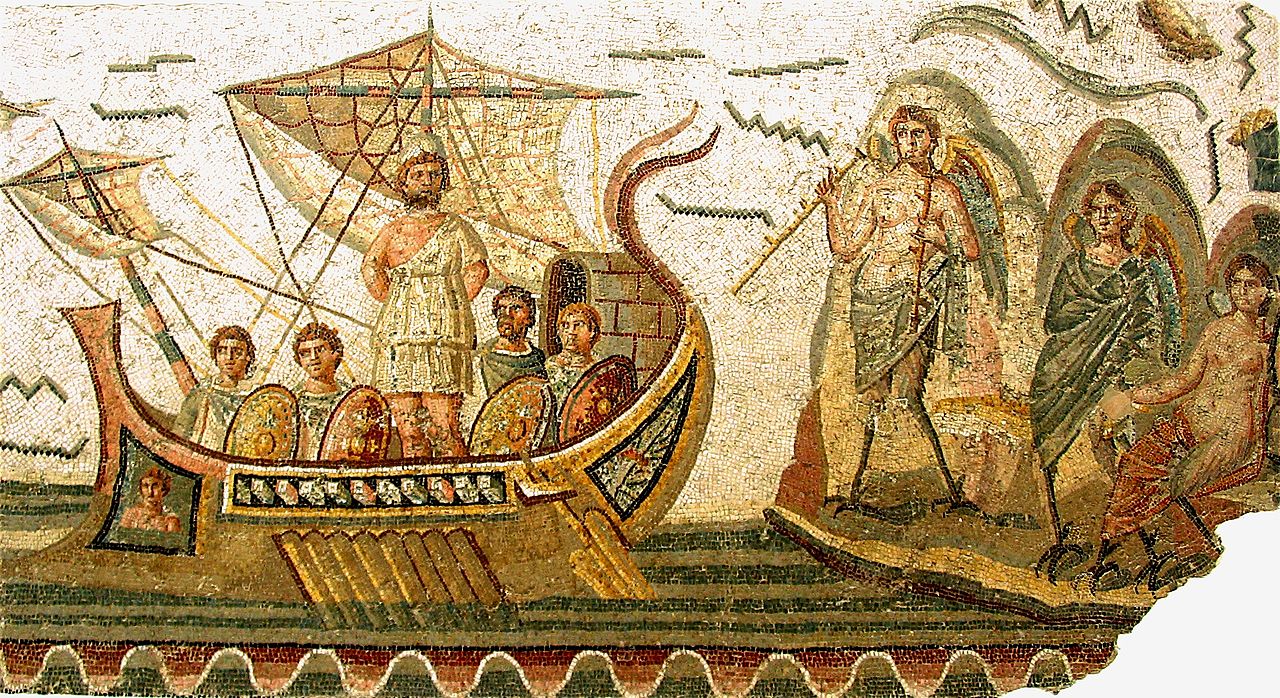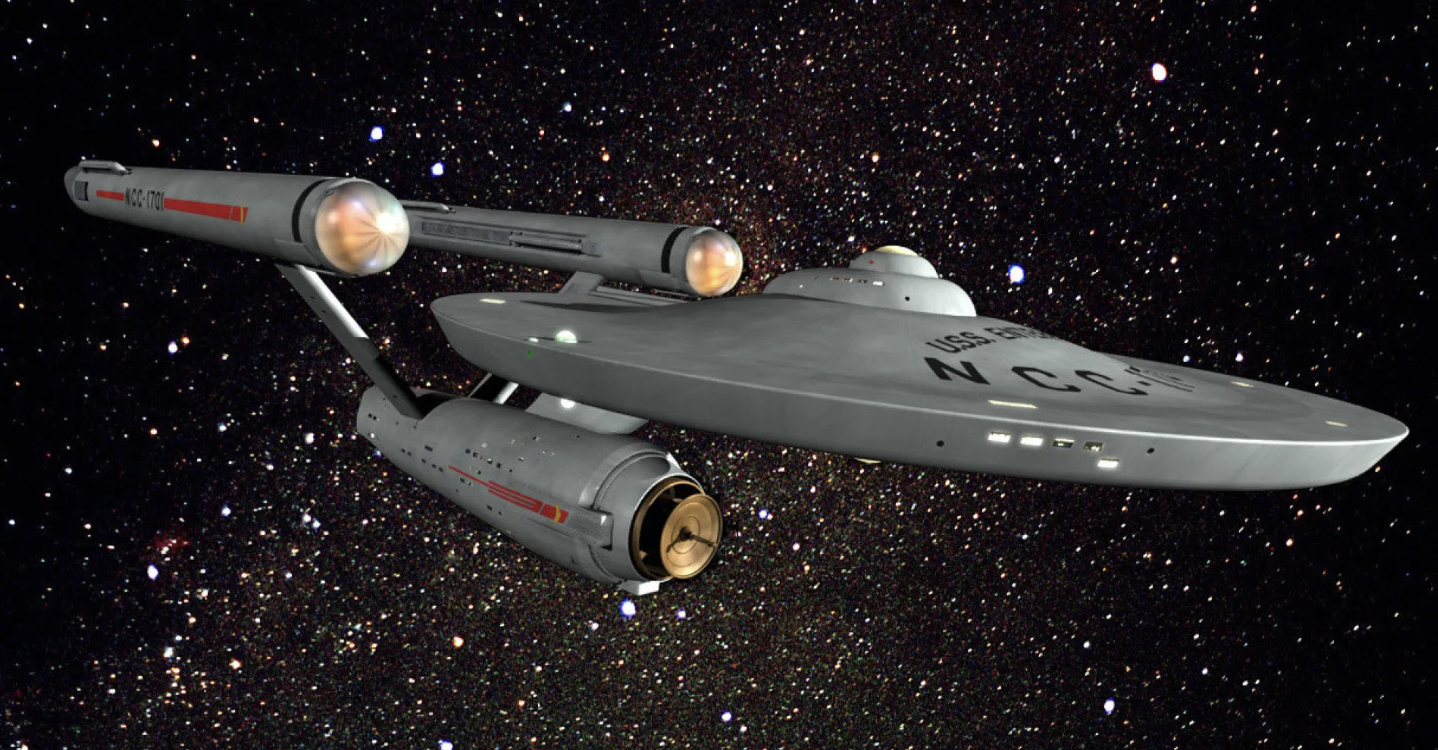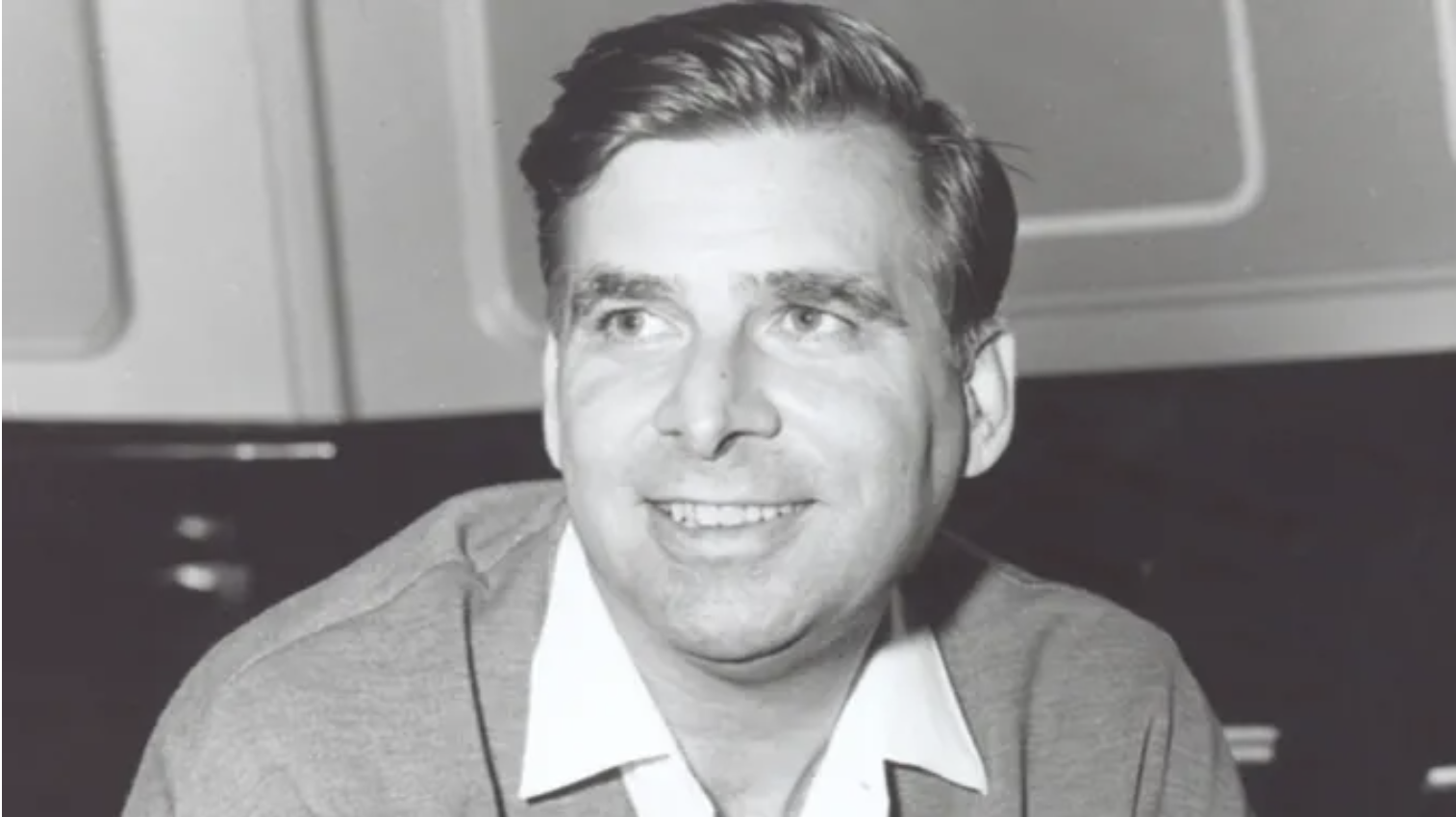4. Everything I Know, I Learned From Star Trek

One of the greatest works in Western (mythical) literature is the Odyssey. Written by the Greek epic poet Homer in the 9th century BCE, it recounts the ten year wanderings of Odysseus, king of Ithaca, after the fall of Troy during the Trojan War. The word odyssey is now defined as an extended adventurous voyage or spiritual quest.[1] A strong case can be made that Star Trek is the Odyssey of our modern era. In the original television series, each episode opened with the following theme:
Space, the final frontier. These are the voyages of the starship Enterprise. Its 5 year mission, to explore strange new worlds. To seek out new life and new civilizations. To boldly go where no man has gone before. [2]
In the Star Trek vision, the future of Earth (24th century) is post-capitalist. In the movie Star Trek IV: The Voyage Home, Captain Kirk states that money is not used anymore:
Movie scenes taking place in Earth’s past (“late 20th century”). 1. Statement by Admiral James T. Kirk (William Shatner) wanting to buy a newspaper from a coin box in San Francisco: “They’re still using money, we’ve got to find some.” 2. Kirk selling 18th century eyeglass frames at an antique shop: Shopkeeper: “I’ll give you $100.” Kirk: “Is that a lot?” Shopkeeper (shrugging): “Um . . .” 3. Conversation between Kirk and Dr. Gillian Taylor (Catherine Hicks, Asst. Director of the Maritime Cetacean Institute, Sausalito, CA): Waiter (presenting bill): “Who gets the bad news?” Gillian: “Don’t tell me they don’t use money in the 24th century?” Kirk: “Well, they don’t.” [3]
In Star Trek: First Contact, Captain Picard states that people are no longer motivated by the desire for material wealth:
Movie scene taking place in Earth’s past (April 4, 2063). Conversation between Captain Jean-Luc Picard (Patrick Stewart) and Lily (Alfre Woodard, assistant to Dr. Zefram Cochran, inventor of warp drive, played by James Cromwell): Lily: “How much did this thing cost (referring to the starship Enterprise)?” Picard: “The economics of the future are somewhat different. You see, money doesn’t exist in the 24th century.” Lily: “No money? You mean you don’t get paid?” Picard: “The acquisition of wealth is no longer the driving force in our lives. We work to better ourselves, and the rest of humanity. Actually we are not unlike yourself and Dr. Cochran.” [4]
At other times, members of the Federation are observed gambling (Deep Space Nine) or trading utilizing various currencies (including a precious metal called latinum). This contradiction can perhaps be explained by the fact that members of the Federation have to interact with inhabitants of other worlds that still use and value money (when in Rome…). An example is the nefarious Ferengi race whose religion, law, and entire culture revolve around money. Their holy book, the Rules of Acquisition, which include such gems as #1 “Once you have their money, never give it back,” and #21 “Never place friendship before profit,” says it all. [5]
On Earth meanwhile, instead of monetary wealth, opportunity for knowledge, artistic expression, adventure, and service to others was valued. A meritocracy was in place with equal opportunities for all, without racial, gender, or other discrimination.
The Star Trek concept has endured and prospered over the last 57 years, as evidenced by the continuing production of new television shows, movies, books (over 3,000 listed on Amazon. com), and numerous toys and other merchandise. Star Trek conventions, where enthusiastic, indeed fanatical, fans gather, are held regularly across the country and around the world. A community of sorts has developed in a manner eerily similar to the nomadic deadhead culture that centered around the performances of Jerry Garcia and The Grateful Dead.

A feature movie entitled Trekkies was made that focused on this fascinating social phenomenon. The following is an excerpt from the trade publication Daily Variety:[6]
Paramount beams up Trekkies … The picture, which was directed and edited by Nygard over a 12-month period in 1996-97, interviews stars from the movies and the skein, including Leonard Nimoy, Brent Spiner and Kate Mulgrew. But the most arresting footage comes from the diehard fans who follow the voyages of the Starship Enterprise, including:
– A man who changed his name to James T. Kirk in 1974.
– A woman who created a media frenzy in 1996 when she showed up for jury duty wearing a uniform, phaser and tricorder.
– The founder of the Interstellar Language School in Red Lake Falls, Minn., who teaches people how to speak Klingon.
– A dental-care facility in Orlando. Fla., where all the staffers wear “Star Trek” uniforms. [7]
Many feel that Star Trek’s popularity derives from its utopian, optimistic view of our collective future. A world where the nations of Earth banded together, eliminating war and poverty, and indeed cooperate beyond the planet by participating in an interplanetary federation. Author Jeff Greeenwald in his book Future Perfect attempts to divine the essence of Star Trek’s worldwide appeal as follows:
Star Trek invokes an almost primal wanderlust – a hardwired compulsion to break away from the familiar, and plumb the depths of outer and inner space, It inspires a desire to build a society where technology is partnered with conscience. It evokes a yearning for family and friendship, which is played out in a thousand different fan clubs and Web sites around the world. And it fulfills a deep and eternal need for something to believe in: something vast and powerful, yet rational and contemporary. Something that makes sense.
But unlike organized religion or spiritual cults, the Star Trek fold does not demand blind faith, poverty, or even simplicity. The show dares to imagine a human future both materialistic and evolved. Its an attractive idea. Our love of toys is not going to dissappear- not as long as we have opposable thumbs – but our relationship to our toys may change dramatically. Take the Enterprise itself, a faster-than-light starship representing the zenith of twenty-fourth-century technology. Built by the United Federation of Planets, it is owned by Starfleet yet in service to all. Its mandate is to expand the collective wisdom, keep the peace, and provide compassionate aid to all who need it; qualities which, by the lights of Buddhism (probably the most rational of all religions), are the practices of an enlightened – and sensible – soul.
Star Trek is often called a phenomena, but the nature of the phenomena is ill-defined. Like everyone else, I’ve got my theories. One of them is this: The saga endures because it is the first great story cycle to celebrate our own epoch, “the neosilicate age.” Created in real time, broadcast week after week to a worldwide audience, it is the nearest we have to a new global mythology. [8]
Star Trek provides us with the makings of a new paradigm for money and wealth. A fundamental shift in values provides guidance on how to adapt to technological change and allows for bold dreams for the future.

Gene Roddenberry 1921-1991
[1] American Heritage Dictionary.
[2] Star Trek, The Original Series, Paramount Pictures, 1966.
[3] Star Trek IV: The Voyage Home, produced by Harve Bennett, Paramount Pictures,1986.
[4] Star Trek: First Contact, produced by Rick Berman, Paramount Pictures, 1997.
[5] Rules of Acquisition, Start Trek: Deep Space Nine, 7th episode of Season 2.
[6] Daily Variety , Tuesday August 4, 1998.
[7] Trekkies , produced by Roger Nygard, Paramount Pictures, 1997.
[8] Jeff Greenwald, Future Perfect: How Star Trek Conquered Planet Earth (New York: Penguin Books, 1998), pp. 2-3.
